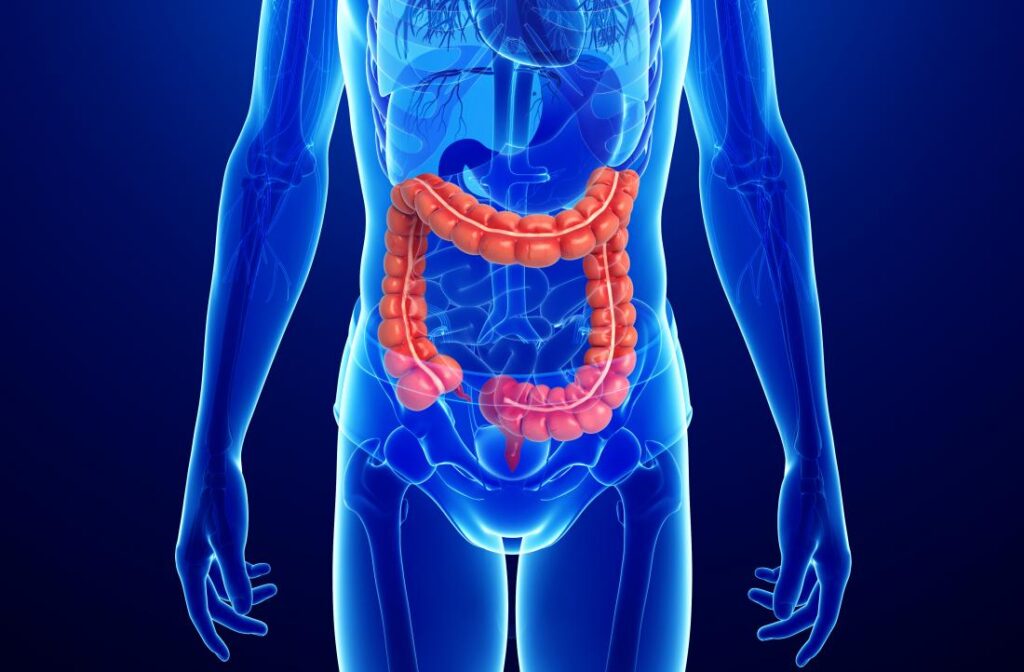Ulcerative
Colitis
Ulcerative colitis (UL-sur-uh-tiv koe-LIE-tis) is an inflammatory bowel disease (IBD) that causes inflammation and ulcers (sores) in your digestive tract. Ulcerative colitis affects the innermost lining of your large intestine (colon) and rectum. Symptoms usually develop over time, rather than suddenly.

Ulcerative Colitis
Causes
- Genes: You may inherit a gene from a parent that increases your chance of having ulcerative colitis.
- Other immune disorders: If you have one type of immune disorder, your chance of developing a second is higher.
- Environmental factors: Bacteria, viruses, and antigens may trigger your immune system.
Symptoms
Common symptoms are:
- Abdominal pain
- Increased abdominal sounds
- Bloody stools
- Diarrhea
- Fever
- Rectal pain
- Weight loss
- Malnutrition
TYPES
UC can be categorized according to the parts of the GI tract that it affects.
- Ulcerative proctitis: In ulcerative proctitis, only the rectum is inflamed
- Left-sided colitis: Left-sided colitis causes inflammation in the area between the splenic flexure (near the upper part of the colon, where it bends) and the last section of the colon. The last section of the colon, known as the distal colon, includes the descending colon and sigmoid colon. Left-sided colitis is also known as distal ulcerative colitis.
- Proctosigmoiditis: Proctosigmoiditis is a form of left-sided colitis. It causes inflammation in the rectum and sigmoid colon.
- Extensive colitis: Extensive colitis, also known as pancolitis, causes inflammation throughout the entire colon. It’s considered a severe form of UC.
Homoeopathic approach & management
Homoeopathic medicines effectively help in controlling the symptoms & preventing the relapse which usually occurs frequently in most of the cases . Along with it , it also helps in improving the intestinal immunity , improves & strengthens the digestive system & improves the general health & well being .
Crohns Disease

Crohns Disease
Causes
Symptoms
In Crohn’s disease, any part of your small or large intestine can be involved
When the disease is active, signs and symptoms may include:
- Diarrhea
- Fever
- Fatigue
- Abdominal pain and cramping
- Blood in your stool
- Mouth sores
- Reduced appetite and weight loss
- Pain or drainage near or around the anus due to inflammation from a tunnel into the skin (fistula)
